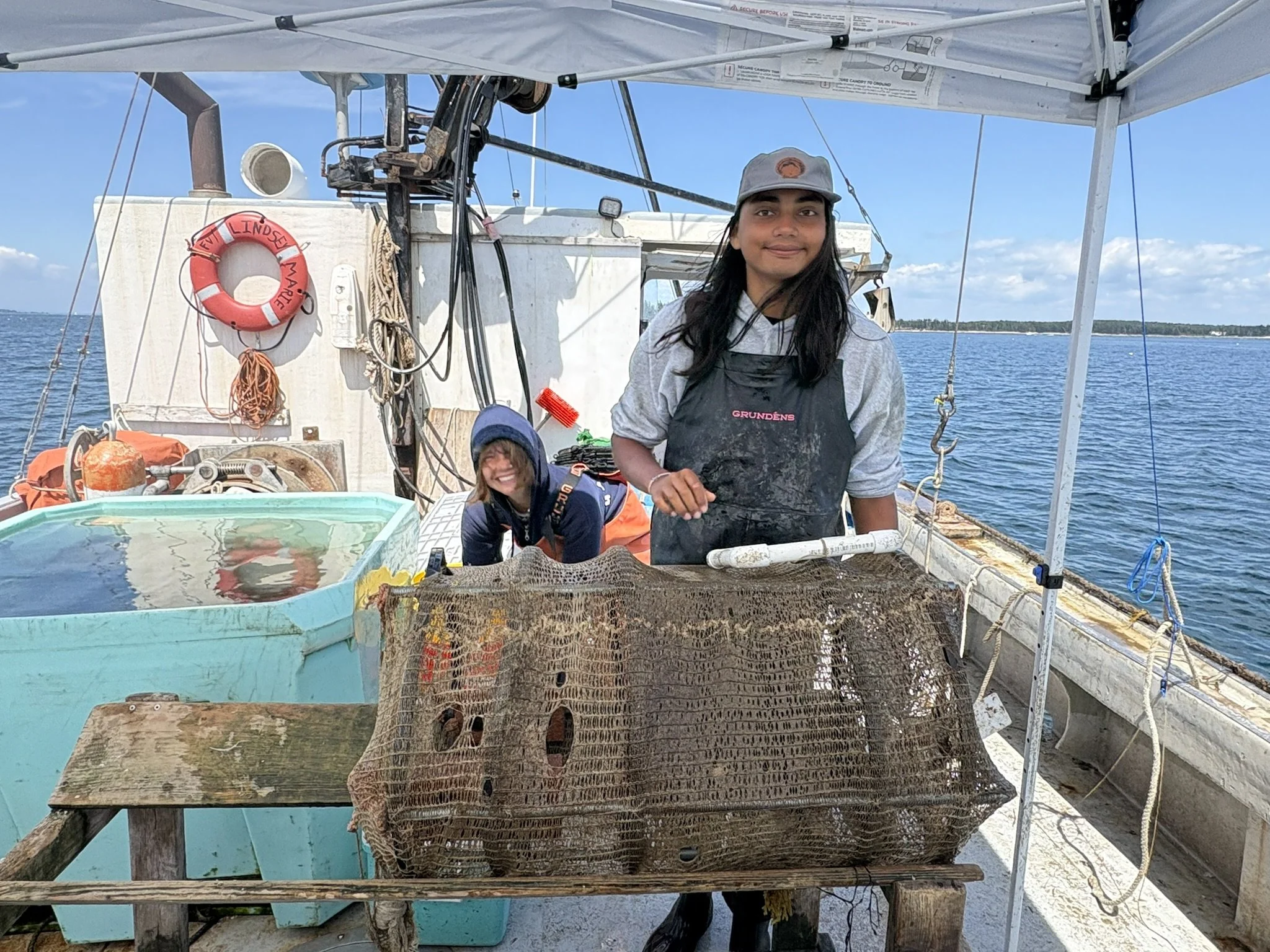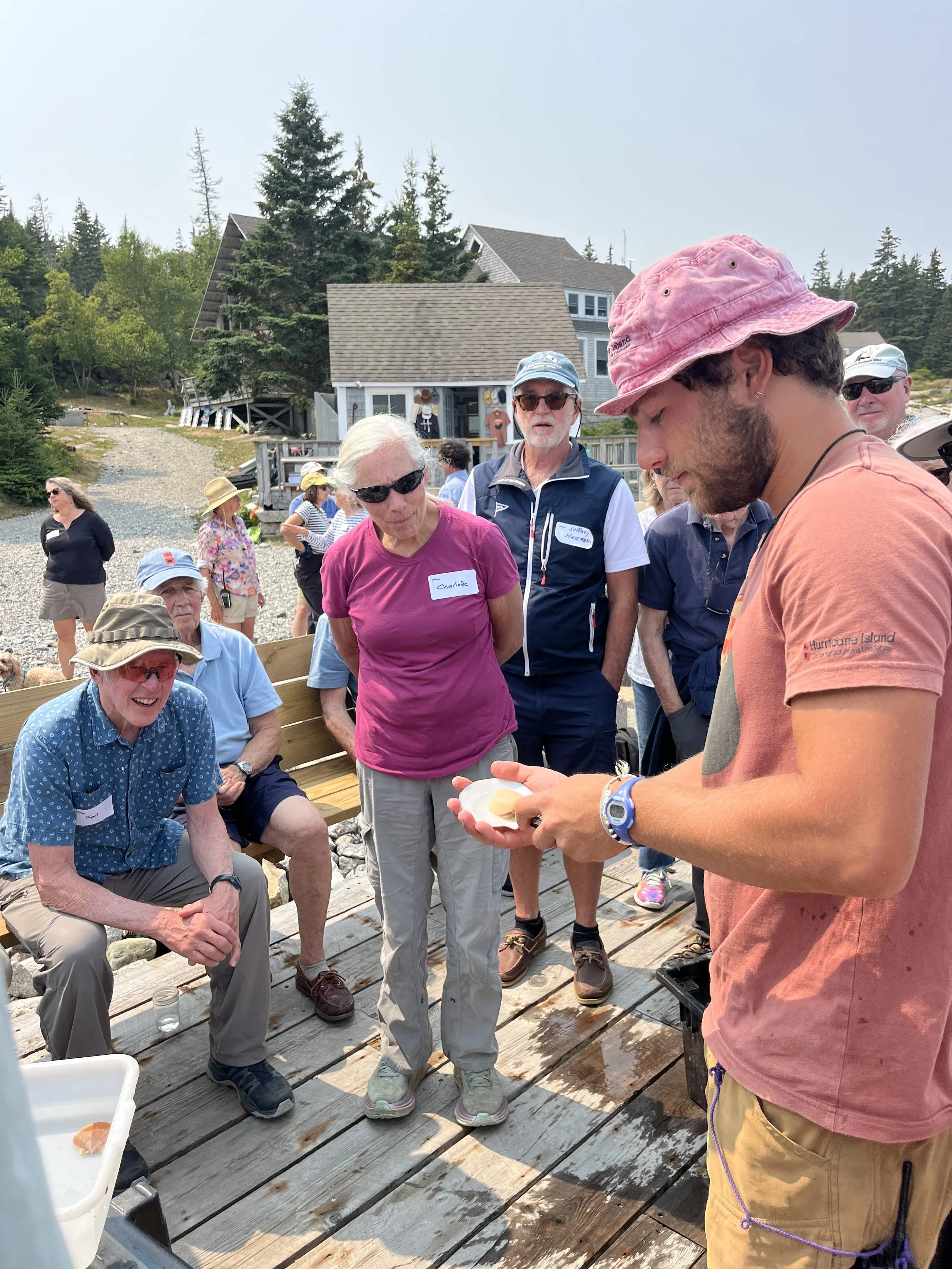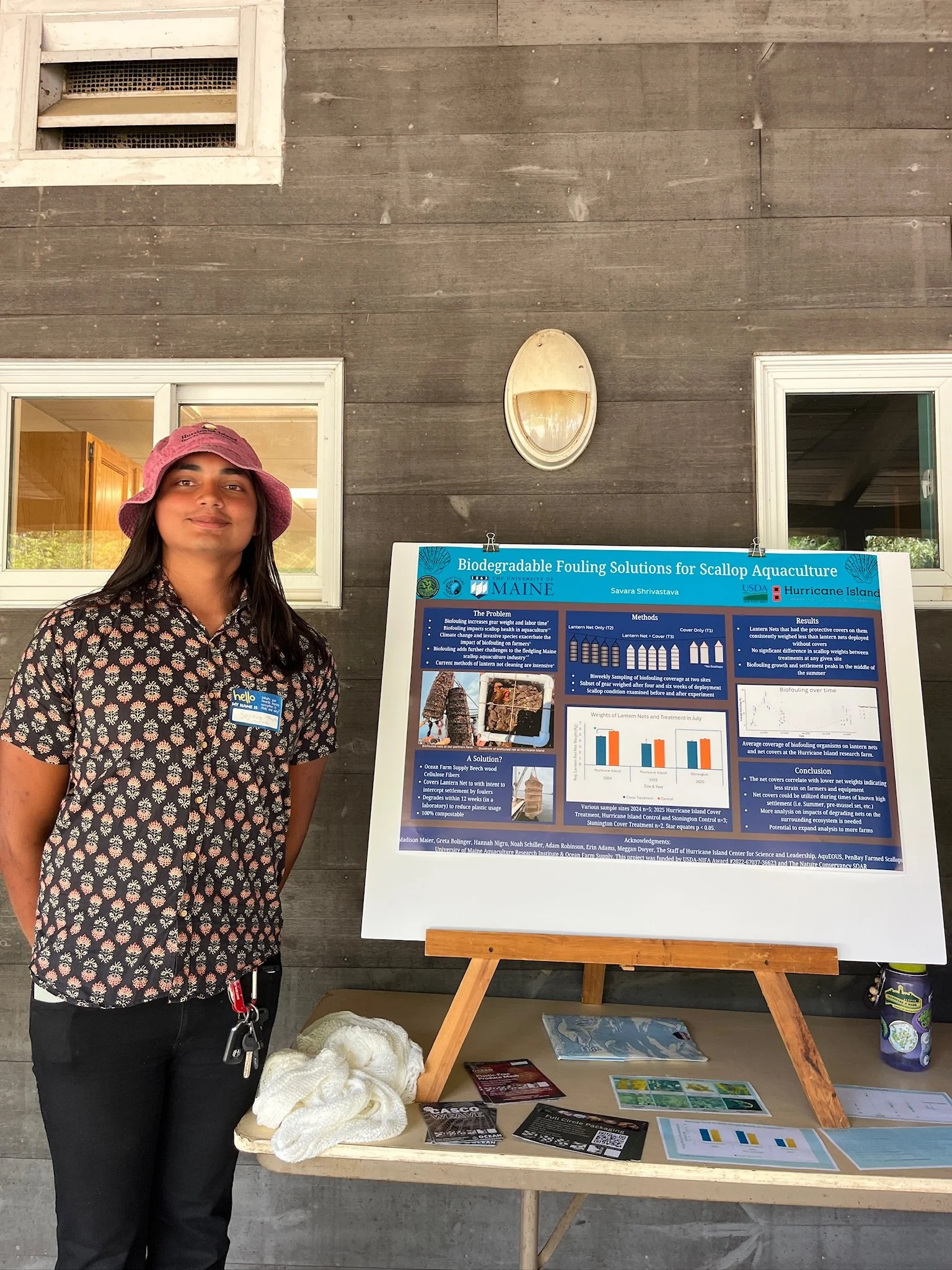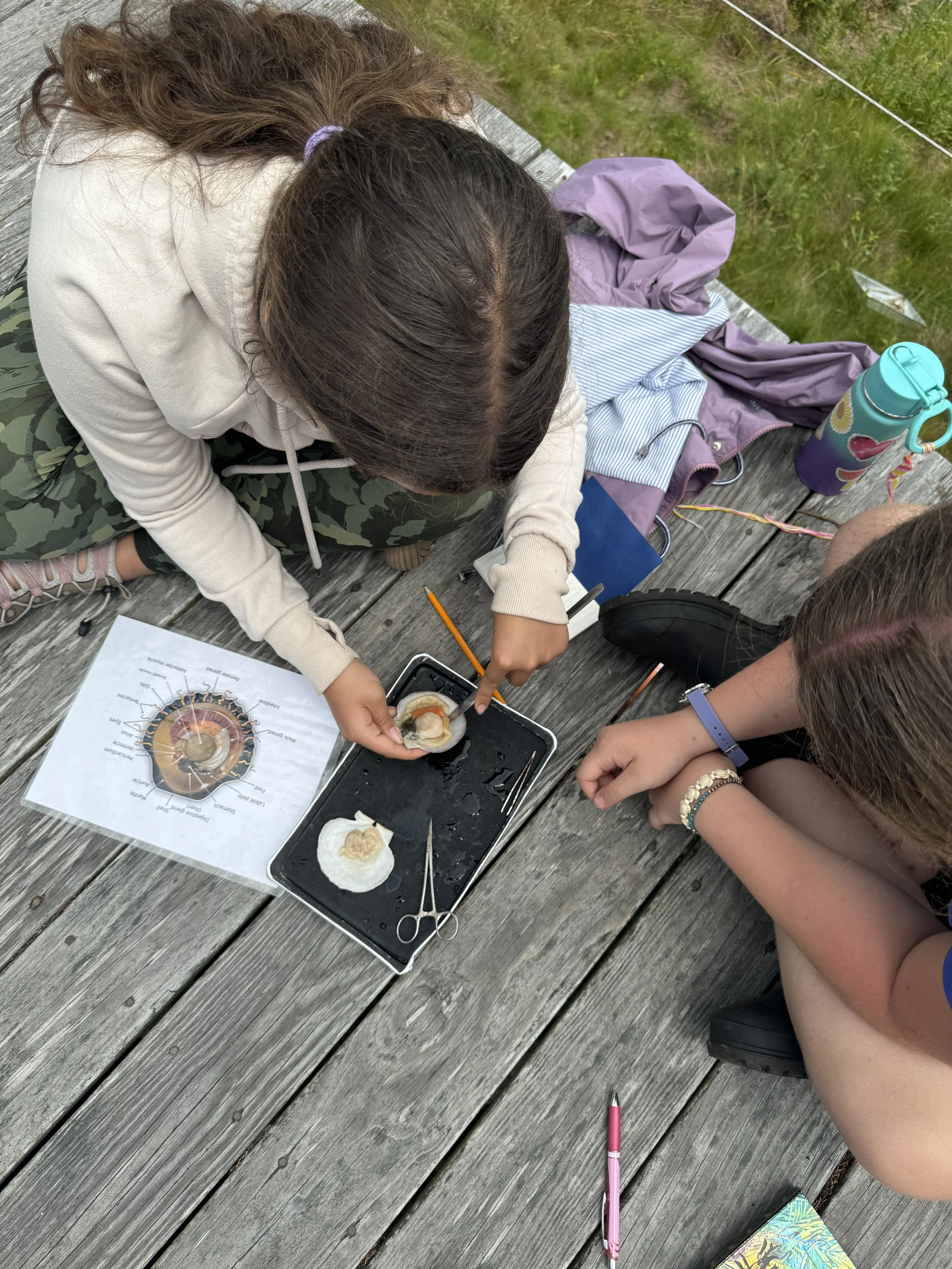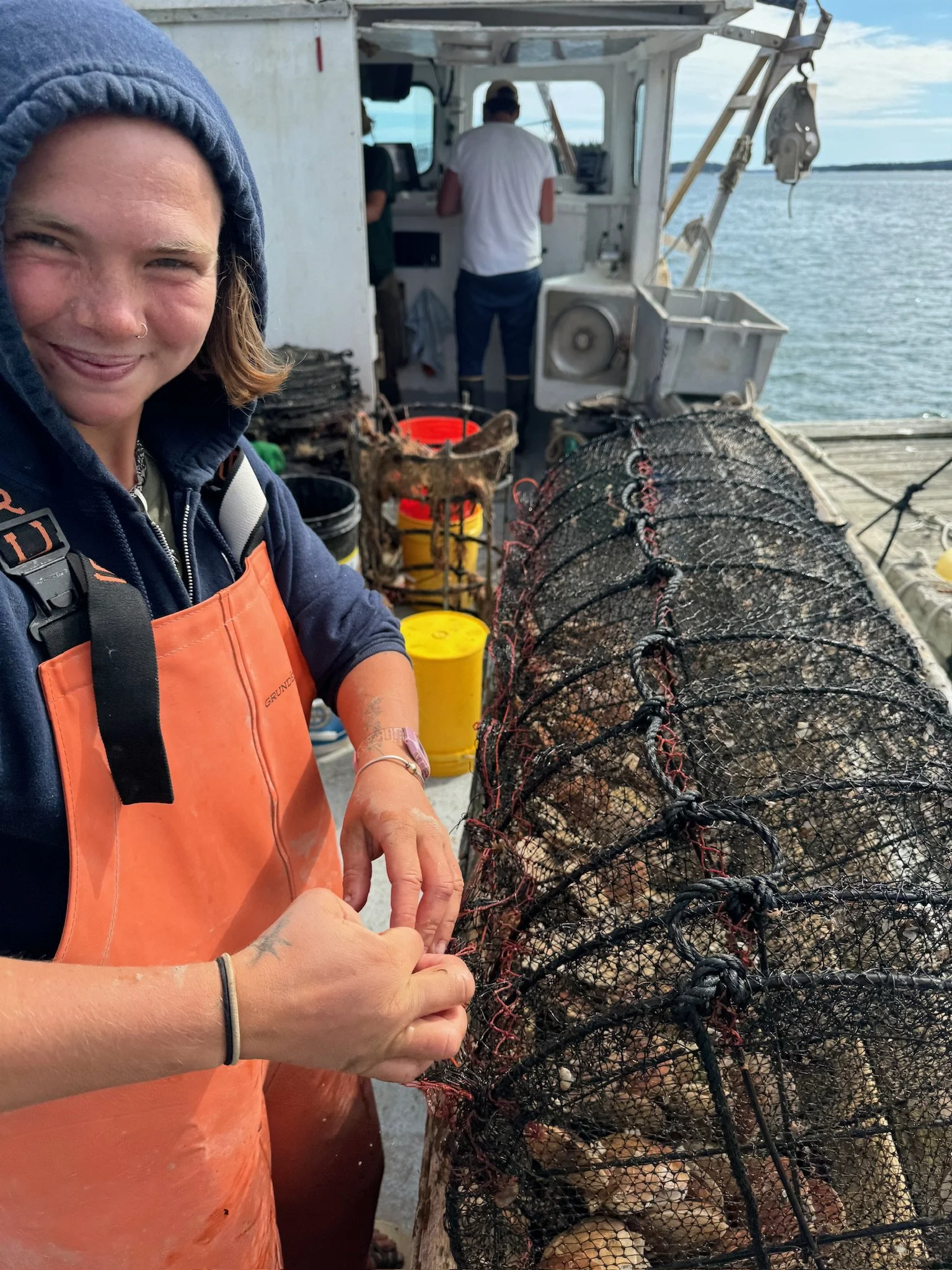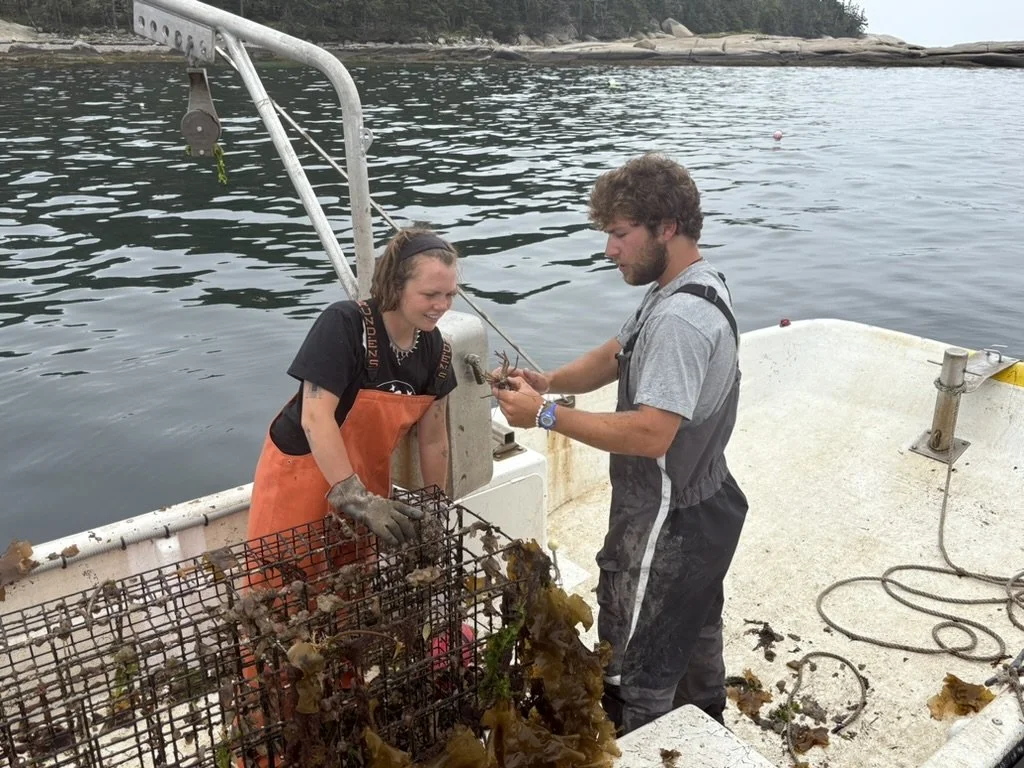Hurricane Island Center for Science and Leadership Boasts A Summer of Aquaculture and Science Learning
Hurricane Island Center for Science and Leadership maintains an experimental aquaculture lease site in Penobscot Bay to focus work on aquaculture research and education for all ages. The work accomplished in using this lease provides those involved with unique opportunities to engage in aquaculture research projects, explore aquaculture professionally, and establish themselves as a part of the valuable waterfront communities of Maine. Hurricane Island’s experimental research lease is on a 3.2-acre aquaculture farm on the south waters of the Island and is conducting research on the emerging industry of farmed sea scallops.
This summer was filled with aquaculture on Hurricane Island. The organization hosted three total aquaculture workshops open and accessible to the public, with an additional workshop to come in fall, inviting individuals to experience aquaculture firsthand and visit the farm site off of Hurricane Island themselves. These free one-day workshops allowed participants to dive into aquaculture growing methods, spat collection for sea scallops, and more. Attendees came from a wide range of backgrounds–from professional oyster farmers to professors to individuals who had no previous knowledge of aquaculture or marine biology. These workshops exist to increase accessibility to and knowledge of the field of aquaculture and scientific research, furthering Hurricane Island’s mission.
Noah Schiller working with spat bags
For ten weeks over the summer, Hurricane Island was additionally particularly delighted to host two AquEOUS Fellows, Savara Shrivastava from the College of William and Mary, and Noah Schiller from Pitzer College, in collaboration with the Aquaculture Research Institute at the University of Maine. The AquEOUS Fellowship is an immersive program for undergraduate students interested in gaining hands-on experience in aquaculture. It focuses on building skills required for successful careers in aquaculture, fisheries, natural resource management, and marine extension work.
During their Fellowship on Hurricane Island, Noah and Savara helped with aquaculture farm labor on the site, engaged visitors and students in aquaculture-related research programming, and assisted local researchers with long-term ecological monitoring data collection and analysis. At the culmination of the program, Noah and Savara had the opportunity to work with Hurricane Island research staff to design their own research project, collect and analyze data, and transform these visuals into final presentations at the University of Maine’s Darling Marine Center AquEOUS Symposium on August 7th.
Savara Shrivastava with lantern nets
The Hurricane Island Fellows’ presentations showcased the interdisciplinary nature of Hurricane Island’s approach to aquaculture. While Savara tested the efficacy of a novel biodegradable gear cover technology, developed by Ocean Farm Supply, designed specifically to reduce biofouling on aquaculture gear, Noah focused on refining methods of integrating scallop aquaculture practices into Hurricane Island educational programming—one of the focuses of the organization. Both Fellows went above and beyond with their projects; Noah created an interactive map, accessible via a QR code on his presentation, displaying coordinates where Hurricane Island educational programs have collected juvenile scallop larvae since 2013. These larvae, explained on Noah’s poster, are then counted, measured, sorted, and incorporated into our experimental aquaculture farm. Savara programmed statistical tests comparing biofouling communities on two different aquaculture sites: Hurricane Island’s experimental aquaculture site and a standard lease, Pen Bay Farmed Scallops, in Stonington, ME.
In addition to working with adults and college aged students, Hurricane Island emphasizes aquaculture-based education opportunities for high school aged students and younger. One opportunity for younger students this summer was a high school program focused on aquaculture and fisheries that allowed students to obtain a level two youth micro-credential in aquaculture from the University of Maine upon completion. The weeklong program focused on education surrounding water quality, biology, animal husbandry, aquaculture systems, and economically important fishers in the Gulf of Maine.
While many students partake individually in Hurricane Island’s programming, the organization also partners with middle schools, high schools, and colleges directly. This year, Hurricane Island is thrilled to have obtained funding to host high school students from the Mid Coast School of Technology. This workforce development effort will focus on aquaculture systems as part of a marine technology class, allowing students to experience a sense of place in Penobscot Bay, become familiar with aquaculture lease operations, establish themselves as science and technology leaders, and jump start their lessons in the class for the remainder of the school year.



